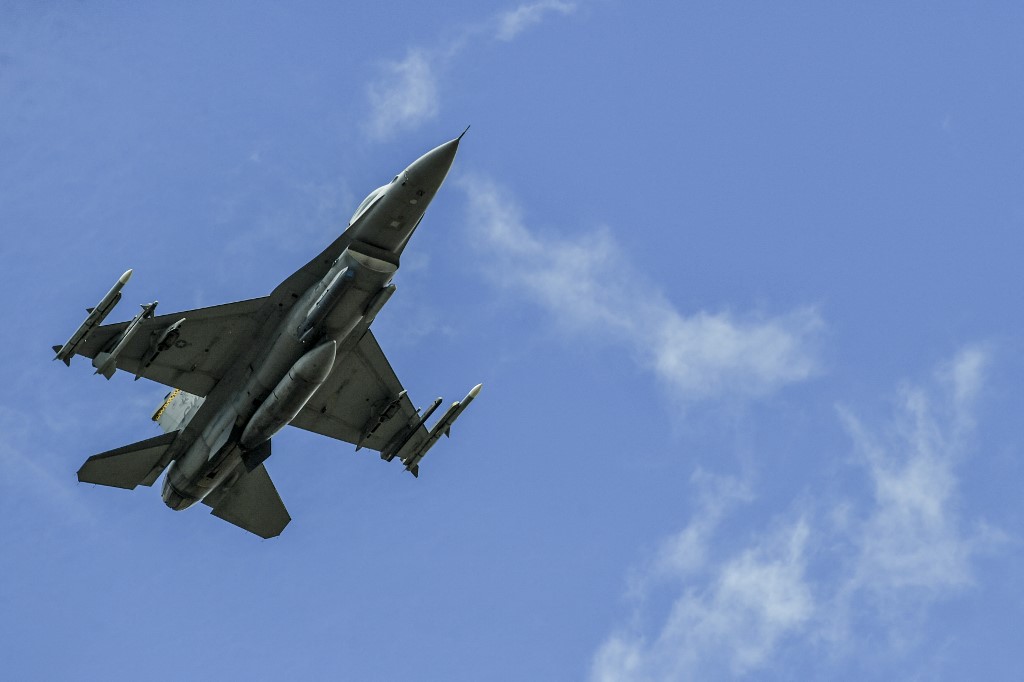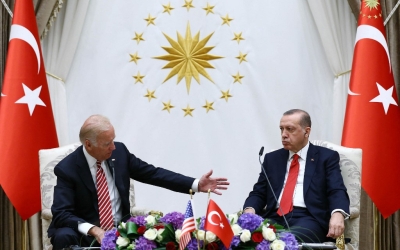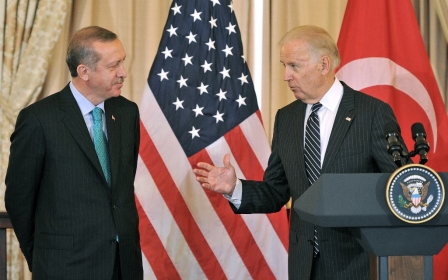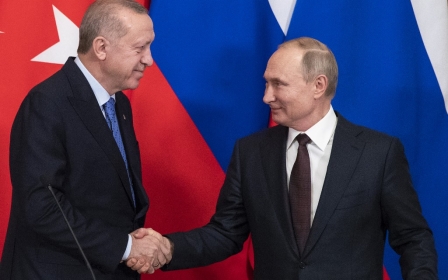US-Turkey: Could F-16 deal revive relations?
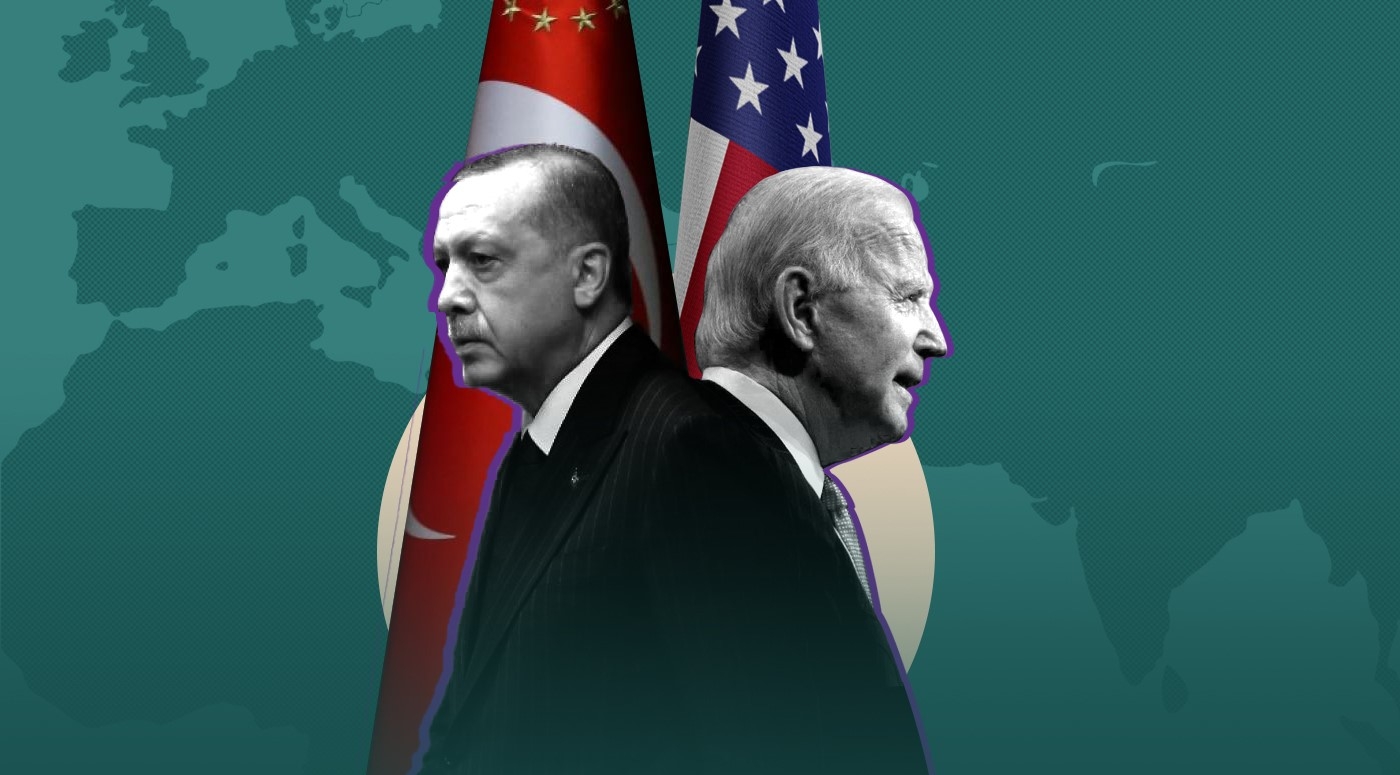
Ahead of a tentative meeting between Turkish President Recep Tayyip Erdogan and US President Joe Biden at the G20 summit in Rome, there remain major issues between the two countries that could derail the relationship - but there are also signs of improvement.
Turkey’s longstanding opposition to US support for People's Protection Units or YPG in northern Syria, in addition to US sanctions on the Turkish defence industry, remain serious obstacles to a productive partnership. Yet, there have been signs of progress, such as Turkey’s recent request to buy 40 F-16s and the Biden administration’s encouragement of Ankara’s engagement with the Taliban after the US withdrawal from Afghanistan.
While Biden's approach of freezing problems that are seemingly insolvable may be useful in the short term, it is unsustainable in the long run
In its first year, the Biden administration has tried to freeze outstanding issues with Turkey, seeking cooperation opportunities. With no quick and easy resolution to the Syria issue or to the dispute over Turkey’s purchase of a Russian S-400 missile system, both sides have been proceeding with caution.
In stark contrast to former President Donald Trump, who preferred to focus on personal relationships and bilateral diplomacy with world leaders, Biden has prioritised institutions such as the State Department and multilateral forums such as Nato. While the Trump administration appeared responsive to Turkish demands, it was also often impatient, as in the case of a detained American pastor.
Yet, while Biden’s approach of freezing problems that are seemingly insoluble may be useful in the short term, it is unsustainable in the long run, potentially deepening mutual distrust and distracting from cooperation opportunities. A more proactive approach is necessary, especially in the case of a Nato ally such as Turkey.
New MEE newsletter: Jerusalem Dispatch
Sign up to get the latest insights and analysis on Israel-Palestine, alongside Turkey Unpacked and other MEE newsletters
Rebuilding trust
In a hopeful sign, Turkey’s recent offer to purchase F-16s reportedly came amid encouragement from the Biden administration. While the details of the potential deal are unclear, Erdogan indicated that it could potentially resolve the $1.4bn owed to Turkey as a result of the country’s exclusion from the F-35 programme.
If successfully completed, this deal would allow Turkey to modernise its airpower and reduce the need for it to seek military purchases from other countries, such as Russia. It would also help to rebuild some of the trust lost between the two allies as a result of the S-400 issue.
As a Nato country, Turkey has repeatedly indicated its openness to alleviate US concerns about the S-400 deal through a working group, but to no avail. While the F-16 deal would not solve the S-400 issue, it could prevent future quarrelling over Turkey’s exclusion from the F-35 programme. The Biden administration must now convince Congress that it is in the US national interest to avoid pushing its Nato ally to seek alternatives.
Turkey needs to upgrade and modernise its existing F-16 fleet until it can rely on its own fleet of indigenous TF-X fighter jets. The F-16 deal would meet this need, while curbing Turkey’s need to procure jets from Russia or others in the meantime.
Turkey’s defence industry has shown significant capacity in recent years, such as through its drone programme, launched after it became clear that the US Congress would not approve the sale of armed drones to Turkey. And as noted previously, when it comes to fighter jets, Turkey already has a programme under way.
Syria strategy
If the F-16 deal is approved, despite potential opposition from Congress, the Biden administration will have taken its first positive step towards rebuilding the US-Turkey relationship. But the Syria issue will remain the elephant in the room, potentially preventing a more robust partnership.
Ankara has been consistent in its opposition to US support for the YPG in the name of fighting the Islamic State. While the Biden administration has not articulated a Syria strategy, Turkey is keenly aware that this issue may not be resolved easily, particularly given the recognition the YPG enjoys in other capitals, such as Moscow. Yet, given Turkey’s military presence across northern Syria, the Biden administration would be wise to work with its Nato ally towards a lasting solution in Syria.
The US-Turkey relationship is complicated and will remain so in the near future, amid shifting regional and global dynamics. This is all the more reason for the two Nato allies to address their serious differences over their defence partnership and regional conflicts.
Their cooperation over Afghanistan and the potential F-16 deal have made clear that there are multiple opportunities to improve bilateral ties. While it may be too early for unguarded optimism, both countries’ national interests would be better served by closer cooperation on multiple fronts.
The views expressed in this article belong to the author and do not necessarily reflect the editorial policy of Middle East Eye.
Middle East Eye delivers independent and unrivalled coverage and analysis of the Middle East, North Africa and beyond. To learn more about republishing this content and the associated fees, please fill out this form. More about MEE can be found here.



